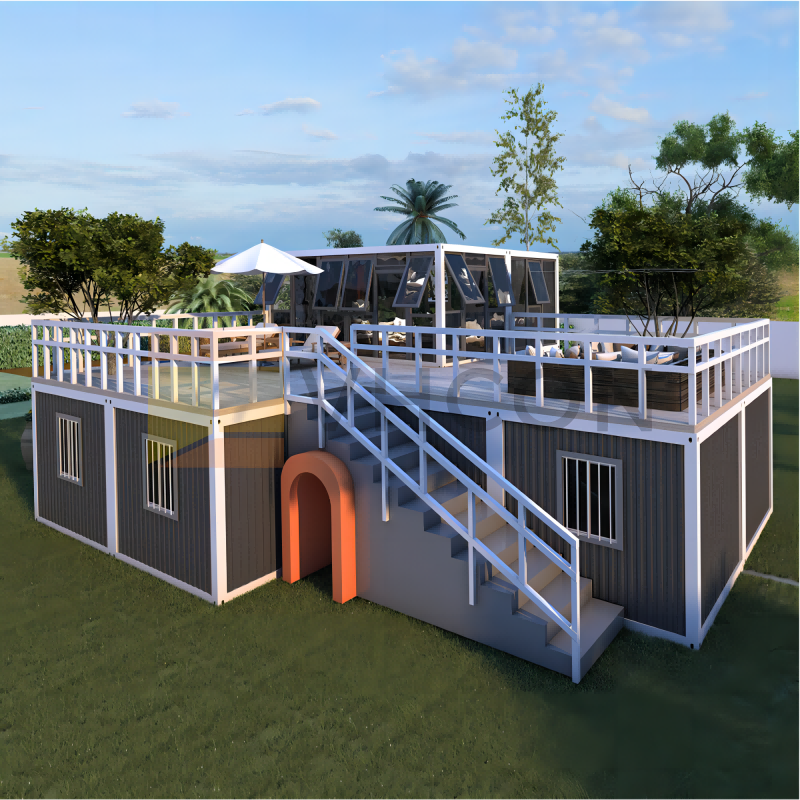Prefab container houses have gained popularity as affordable and sustainable residential options. If you are considering purchasing a prefab container house for residential use, there are several important factors to keep in mind. This article aims to provide you with essential information to make an informed decision and ensure a successful investment.
Structural Integrity and Quality
When purchasing a prefab container house, prioritize structural integrity and quality. Assess the materials used, such as the steel frame, wall panels, and roofing. They should be sturdy, weather-resistant, and durable. Look for certifications or compliance with industry standards to ensure that the prefab container house meets safety requirements. Request information about the manufacturing process and quality control measures implemented by the supplier.
Customization Options and Flexibility
One advantage of prefab container houses is their ability to be customized. Consider your specific needs and preferences for the layout, size, and design. Determine whether the supplier provides customization options and the extent to which modifications can be made. Discuss details such as floor plans, interior finishes, insulation, windows, and doors. Ensure that the supplier can meet your customization requirements before making a purchase.
Energy Efficiency and Insulation
To ensure comfortable living conditions and minimize energy consumption, inquire about the energy efficiency and insulation features of the prefab container house. Ask about insulation materials used and their R-value, which indicates thermal resistance. Inquire if the house features energy-efficient windows and doors, and if renewable energy systems like solar panels can be integrated. A well-insulated and energy-efficient prefab container house will help reduce heating and cooling costs.
Permits and Regulations
Before purchasing a prefab container house, familiarize yourself with local permits and regulations pertaining to residential structures. Check if there are any restrictions on using prefab container houses for permanent residences in your area. Ensure that the prefab container house complies with zoning laws and building codes. Consult with local authorities or engage a professional architect to navigate through the permitting process smoothly.
Site Preparation and Foundation
Evaluate the site where you plan to install the prefab container house. Assess the ground conditions, drainage, and utilities availability. Determine if any site preparation is required, such as clearing vegetation or leveling the ground. Consider the foundation options suitable for your site, such as concrete piers, strip footings, or concrete slabs. Discuss with the supplier or a structural engineer the most appropriate foundation solution for your specific location.
Budget and Financing
Establish a realistic budget for purchasing and installing a prefab container house. Request quotations from different suppliers and compare prices, including transportation and installation costs. Consider financing options and explore if there are any incentives, grants, or loans available for sustainable housing initiatives. Factor in long-term cost savings from energy-efficient features when assessing the affordability of the prefab container house.
Purchasing a prefab container house for residential use requires careful consideration of various factors. Prioritize structural integrity, customization options, energy efficiency, and compliance with regulations. Determine the suitability of the site and budget accordingly. By keeping these essential points in mind, individuals can confidently invest in a high-quality prefab container house that provides a comfortable, customizable, and sustainable living space.
Post time: Jul-14-2023







